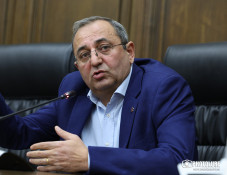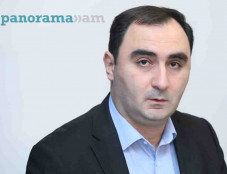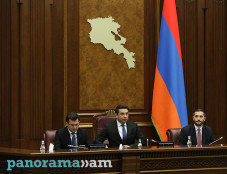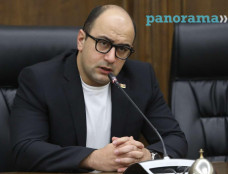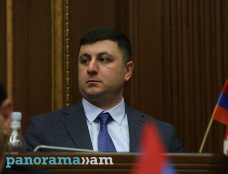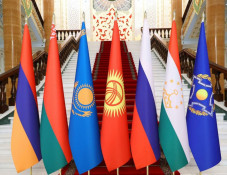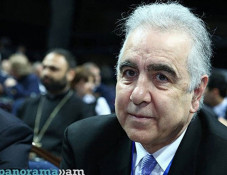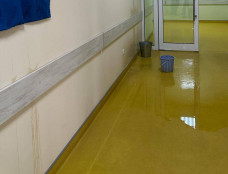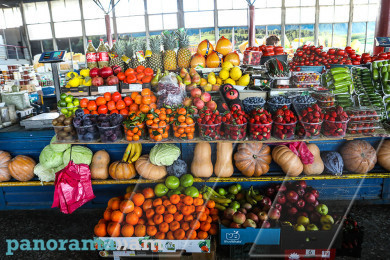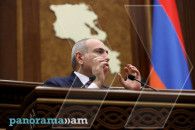
Erdogan’s denial of coronavirus crisis risks the lives of 80 million Turks
By Harut Sassounian
Publisher, The California Courier
The world as we knew it changed dramatically in the last few weeks due to the unexpected spread of the deadly coronavirus. Hundreds of millions of people around the world are isolated in their homes, scared of coming in contact with anyone who might be carrying the virus.
Several autocratic heads of states were slow to react to the virus denying that it was a serious problem in their countries. Eventually, as more and more people were infected with the virus, these leaders finally saw the light and started to take urgent measures to protect their people.
One such irresponsible leader is the President of Turkey, Recep Tayyip Erdogan. Michael Rubin, a resident scholar at the American Enterprise Institute, wrote a lengthy article in the March 16, 2020 issue of The National Interest, titled: “Gambling with 80 Million Lives: Why Erdogan Lied about Coronavirus.”
Rubin referred to Ergin Kocyildirim, a Turkish pediatric cardiothoracic surgeon at the University of Pittsburgh’s School of Medicine, who described in an essay “both the Turkish government’s claim to have established an effective testing kit and the fraudulence of its claims.”
Even though the Turkish Health Minister initially denied that there were any coronavirus cases in Turkey, after widespread claims of the spread of the virus, Turkish authorities arrested the whistle-blowers. Another 64 Turks were jailed after being accused of disseminating false and provocative information. Furthermore, members of the state-controlled Turkish press panel insisted that “Turkish genes rendered most Turkic people immune,” Rubin reported.
Rubin attributed Erdogan’s lies about the absence of the coronavirus in Turkey to his “dangerous combination of arrogance and ignorance…. A larger motivation may be fear. While Turkey’s demography is shifting in Erdogan’s favor as conservative families from Turkey’s Anatolian heartland grow relative to the Europeanized Turks from central Istanbul and the Mediterranean coast, the economy is faltering. In 2010, Erdogan promised that by Turkey’s 2023 centennial, Turkey would be one of the world’s top ten economies. Even before coronavirus, Turkey would be lucky to remain in the top 20 as corruption, nepotism, political interference in business, and broad mismanagement have combined to send confidence in Turkey’s economy into the gutter.”
Another reason Rubin gives for Erdogan’s cover-up of the spread of the coronavirus in Turkey is his fear of the collapse of the tourism industry. “In 2018, the Turkish tourism industry accounted for nearly $30 billion dollars. Just a year ago, Erdogan promised that Turkey would host 50 million tourists, raising that figure by at least 20 percent. Add into the mix Turkey’s investment of approximately $12 billion in a new Istanbul airport, expected to be the world’s largest, and one in which Erdogan and his family are reportedly heavily invested. It seems Erdogan sought to downplay reports of coronavirus in order to encourage tourist dollars to continue to flow. In doing so, he sought not only to play Russians, Europeans, and Americans for fools, but also endangered their lives. Unfortunately for Turkey, it will be Turks who will most pay the price as Turkey threatens to become the virus’ next big cluster. One Turkish doctor estimates that as many as 60 percent of Turks may now be infected and that Erdogan is retarding testing in order to prevent the scale of the catastrophe from becoming known. Deaths were inevitable, but Erdogan’s dishonesty will likely cause many thousand additional deaths in his country added to the dozens Turkey reportedly has already experienced but will not officially report.”
To make matters worse, as in several other countries, the Turkish public has invented fake cures for the coronavirus. Nazlan Ertan wrote in the Al-Monitor website that Turks are now resorting to cannabis and sheep soup to fight the vicious virus.
Abdurrahman Dilipak, a prominent Islamist columnist for the daily Yeni Akit newspaper, suggested that cannabis “can create a major barrier to the global spread of the virus.” Dilipak, who has 700,000 Twitter followers -- about six times more than his newspaper’s circulation, also urged his Turkish readers to avoid receiving any vaccines from overseas because they would likely contain sterilization agents, linking such vaccines to an Aryan plot.
After a Turkish professor suggested the ‘kelle pacha’ (sheep soup) cure, many Turks flocked to local restaurants preferring the soup to social distancing. “The outbreak of coronavirus led to high demand for kelle pacha,” Hurriyet reported on March 16. “After the news articles, the kelle pacha orders both at the restaurant and as take-away have increased,” said a waiter at Ismet Usta, a popular restaurant in downtown Izmir.
“All of these remedies -- from gorging your throat with vinegar to whatever soup, has no use,” Mehmet Ceylan, the president of the nongovernmental Infectious Diseases Association, said in an NTV news program on March 16. “These are unscientific and should not be spread [through the media or word of mouth].”
Fortunately, in recent days, there has been a turnaround in the approach of Turkish officials to the virus. They are now urging the population to stay indoors in self isolation to avoid more infections. I hope that these measures are not too late and millions of Turks are not already at risk. The announced numbers of 1236 infections and 30 deaths due to the coronavirus do not reflect the real figures.
At this critical time, we wish everyone good health, regardless of nationality, religion or skin color. We hope that this malicious disease has inadvertently helped to bring people and nations closer to fight together the common invisible enemy.
Related news
- Erdogan should be tried by International Criminal Court for supporting terrorism
- Remnants of an old Armenian village near Ankara
- Finally, after 105 years, Syria recognizes the Armenian Genocide
- The world dislikes Trump & his policies, according to Pew Research Center
Newsfeed
Videos





